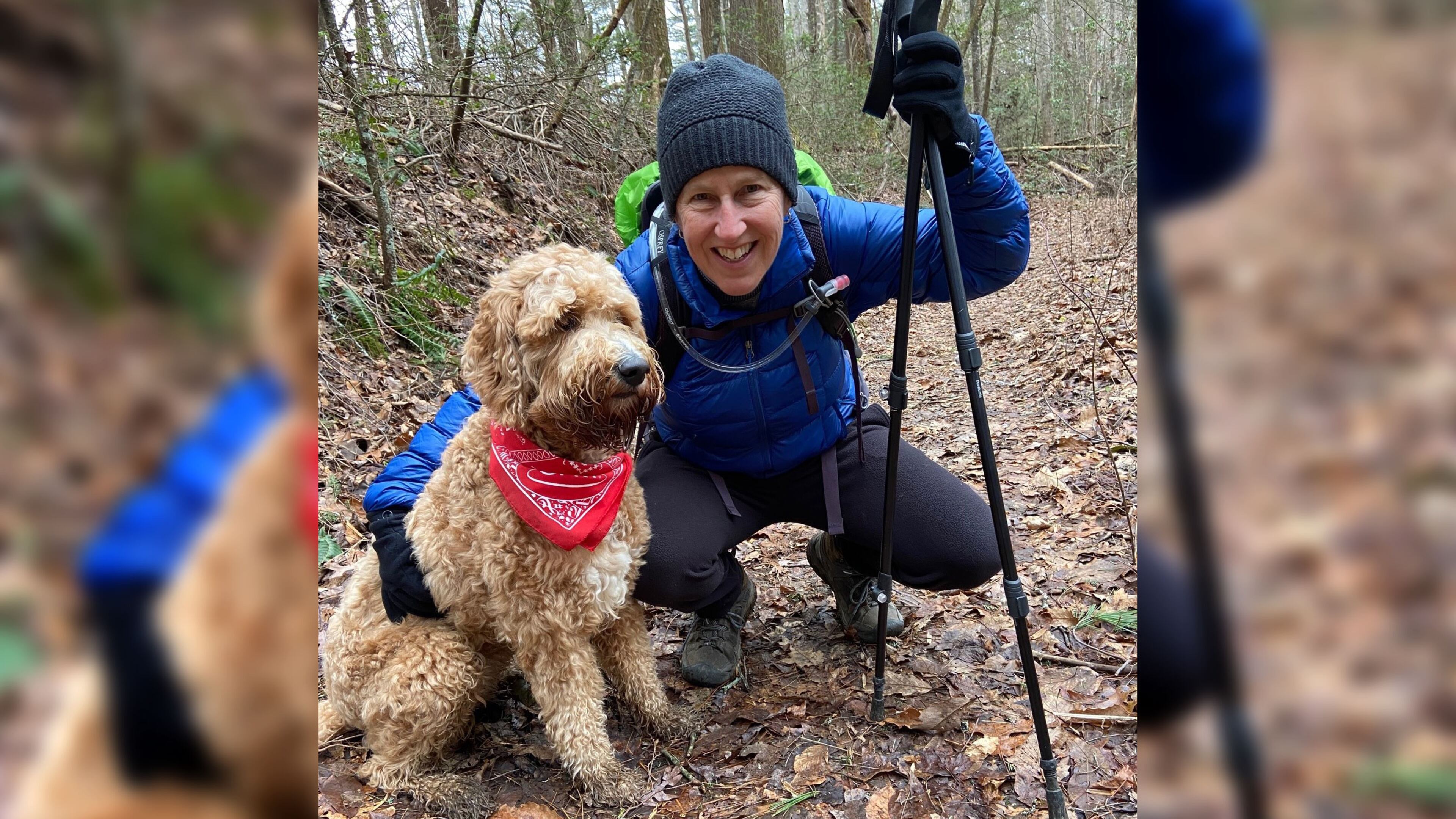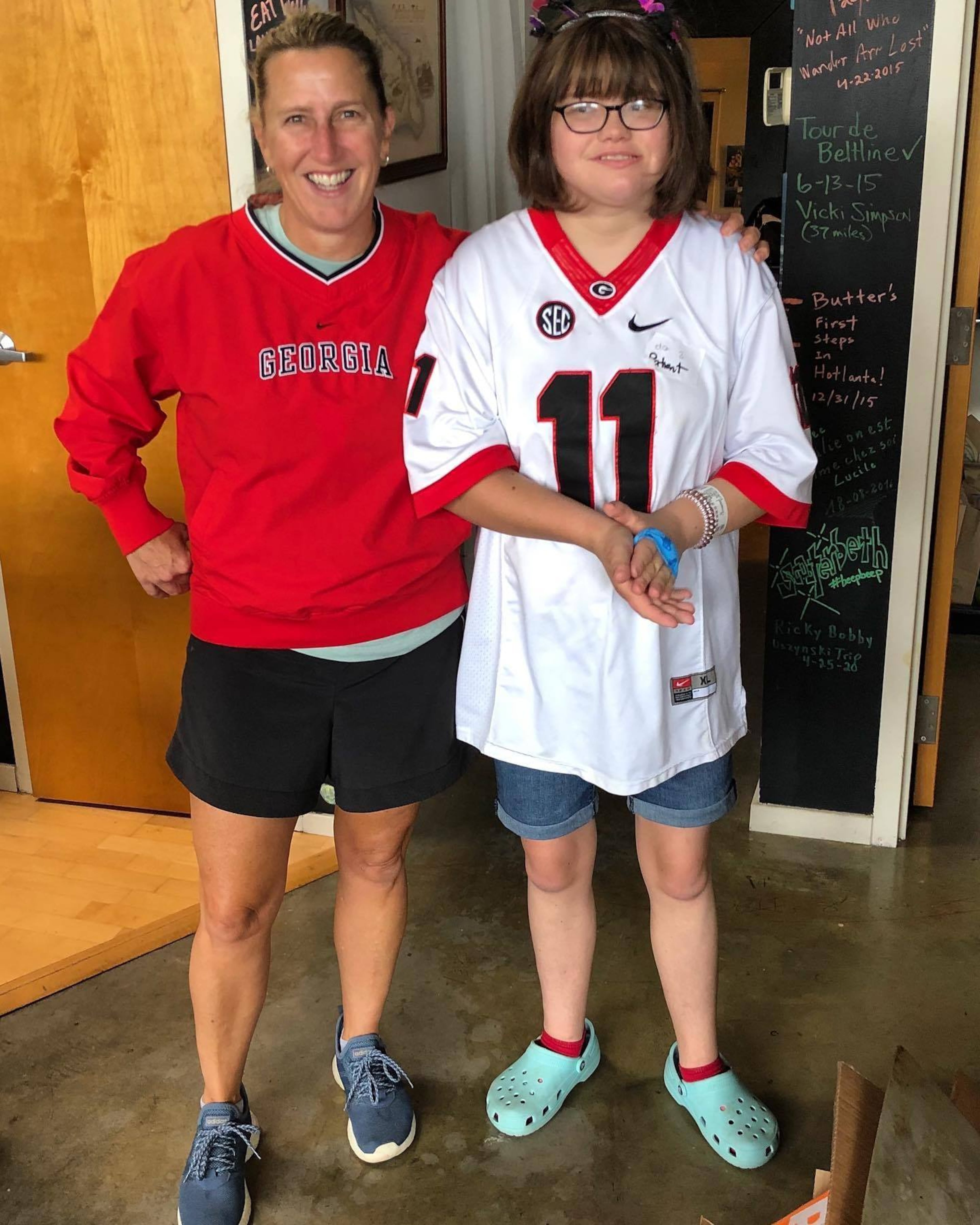Atlanta woman plans to scale Mount Kilimanjaro

Natalie Nuce has hiked more than 250 miles during the last six months with her devoted goldendoodle, Sabi, by her side as she prepares to scale Mount Kilimanjaro in Tanzania next week.
Soon, Nuce — sans Sabi — will stand alongside 21 other climbers at the base of the highest peak in Africa, Mount Kilimanjaro, at 19,341 feet.
Besides their sense of adventure, the climbers have one other thing in common — they have all donated a kidney.
They’re part of a group called Kidney Donor Athletes and they’re climbing Mount Kilimanjaro to raise awareness that as a living donor, people can live a normal life. The group plans to summit Mount Kilimanjaro on March 10, which is recognized as World Kidney Day.
“Kilimanjaro wasn’t on my bucket list, but neither was donating a kidney,” said Nuce, 54, who lives in Flowery Branch and is a principal giving manager at Habitat for Humanity International.
Nuce donated a kidney on July 16, 2020, in the early months of the pandemic. The recipient was Annabelle, the adult daughter of a friend. Nuce had befriended both when she in another role helped place a service dog for Annabelle, who has Smith-Magenis syndrome, a developmental disorder that can affect speech and language skills and intellectual ability.
She said when she heard about Anabelle’s need for a kidney she felt a little “tug” that she should consider being a donor.
“There was no blood relationship. It was a step of faith that I put my name in the hat.”
There were a battery of tests to make sure they were a match and that the organ would not be rejected.
It was a perfect match, said Nuce, almost like the two were siblings.

There were more than 41,000 transplants in the U.S. in 2021. Of those, approximately 6,500 were living donor transplants, up 14.2 % from the previous year, according to the United Network for Organ Sharing.
Kidney and liver transplants are the most common.
And the waitlist is long. The number of people on the national waitlist for a kidney is more than 90,000, according to UNOS.
“There’s a stigma out there that if you donate your kidney you might not be able to do the things that you used to do before,” said Michael Lollo, president of the National Kidney Donation Organization and who donated a kidney to a stranger. “We want to dispel that myth and encourage more people to be living organ donors.”
Now Nuce hopes the Kilimanjaro expedition will encourage others to donate.
Nuce was healthy and active before the procedure, which has just left a three-inch scar on her abdomen . She still plays competitive tennis, she hikes, paddleboards and kickboxes. Her biggest fear about donating was that she “wouldn’t be the same.”
She found others online who had donated a kidney and realized they could be the biggest advocates for organ donation.
Bobby McLaughlin, who is based in Seattle and is president of Kidney Donor Athletes, said the group is made up of 21 people from the United States and one from Canada.
The idea grew out of a virtual Yahtzee tournament among a group of kidney donors that was held during the early onset of the pandemic.
During happy hour the subject of scale Mount Kilimanjaro was hatched after one person shared that she and her husband planned to summit on a future trip.
“We aren’t professional athletes, just normal people who move our bodies to improve our health and we all donated a kidney,” said McLaughlin, who donated to a stranger in 2019. So far the group has raised more than $150,000 through GoFundMe.
The goal of the fundraising campaign is to launch programs and initiatives in the group’s three-year strategic plan of advocacy, awareness and education.
The climb begins on March 4 and people can follow their journey on Facebook.
Annabelle’s mother, Heather Whitaker, who lives in Middle Georgia said her daughter is doing well.
“I think it’s the best billboard to get the word out that a donor’s life can be successful and a blessing.”
For more information about organ donation:
United Network for Organ Sharing: unos.org
National Kidney Donation Organization: nkdo.org



